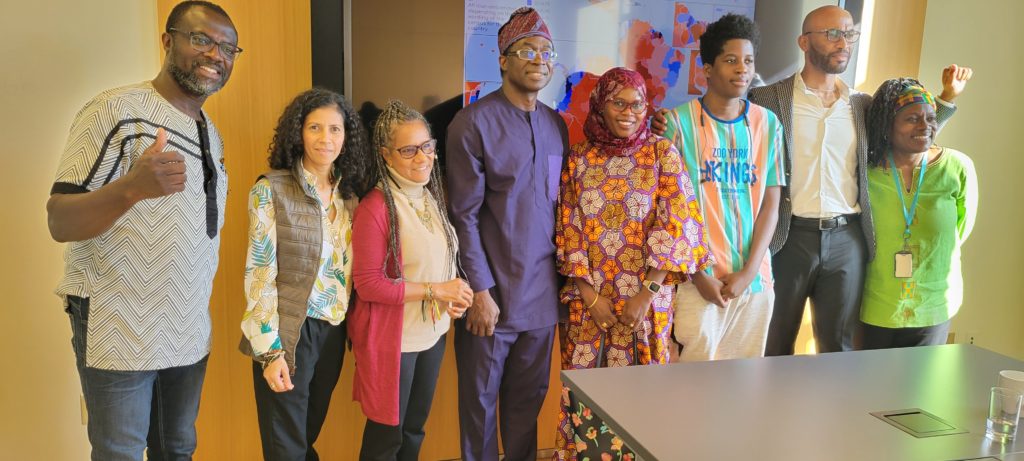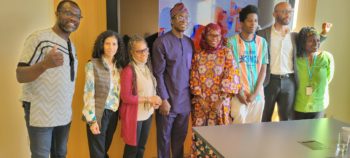
ACAO and Black History Ottawa Welcome Afro-Colombian Delegation
By Kataali Abukari
Wednesday, June 8, 2022
On June 8, 2022, the executive members of the African Canadian Association of Ottawa went to The Global Centre for Pluralism to meet with members of the Afro-Colombian Delegation. At the beginning of the meeting, all the members were given a red velvet to hold in their hands. This was an indigenous ceremony for positive energy. After everyone received the velvet the meeting began to proceed with formal introductions, where everyone would begin by sharing their names and then information about what it is they do at their workplace. After the introductions, a member of the Colombian and indigenous conglomerate began a presentation. The presentation began with them discussing the population of black people within the Americas. Outside of Africa, the US and Brazil Colombia has the highest population of black people (about 20%). A majority of Columbia’s black population are people who descended from the slaves who were brought there from countries in West Africa by the Spanish during the early 1500’s. Over 250 years of slavery about 1 million Africans were transported from West Africa to Colombia.
The delegation shed light on the racial issues that the black and indigenous communities in Colombia had been facing. In Colombia approximately 4.4% and 20% of the population are indigenous and Afro-Colombian respectively, making Colombia a pluri-ethnic and multicultural nation. This was officially noted in 1991 after the signing of the Ethnic chapter, the chapter’s purpose was to allow for indigenous and Afro-Colombian groups the right to take part in rural reform, political participation, and reparation for victims of armed conflicts. However, as of 2016 the Indigenous and Afro-Colombian people have had their rights trampled upon by the government with the expansion of industrial projects, and prevention of Afro/Indigenous communities to take part in the negotiations of all that occurred in the civil war which took place from 1964 -2016. Due to this, many black and indigenous people are being forced out of their homes while the ones who try to speak up against these atrocities end up killed or tortured for the sake of demoralizing the victims.
On the other hand, we have received a fragment of hope with the recent election of Gustavo Petro and Francia Márquez as president and vice president respectively. Colombia’s new vice president Francia Márquez is none other than a black woman herself. This is great news for the Afro and indigenous communities as for the first time ever a black woman is this close to the top executive branch, this election could potentially change things for the better for people of African descent in Colombia. The goal of their visit was to drum up support for Afro-Colombians and to put pressure on Colombia to honour international protocols and charter on human rights which Colombia is a signatory. The delegation also had meetings at the Parliament to push for Canadian policy alternatives to help fix human rights abuses against Afro-Colombians and indigenous people. Fostering partnerships with black organizations such as ACAO and BHO is a sure way to amplify their voices and help solidify relationships with the Continent.
As black people, if we were to come together for one another we could put an end to a lot of injustice that we face together on a global scale. After all, it’s not just the United States nor Colombia where black folks are being oppressed, it is a global phenomenon and Canada is no exception. If we could unite and stick up for one another even the smallest of victories for one group can become a big win for everyone.
The culmination of the day was the dinner at Gatineau which saw some speeches of solidarity as well. The dinner was sponsored by the Public Service Alliance of Canada.
Kataali Abukari is an intern with the African Canadian Association of Ottawa (ACAO)














